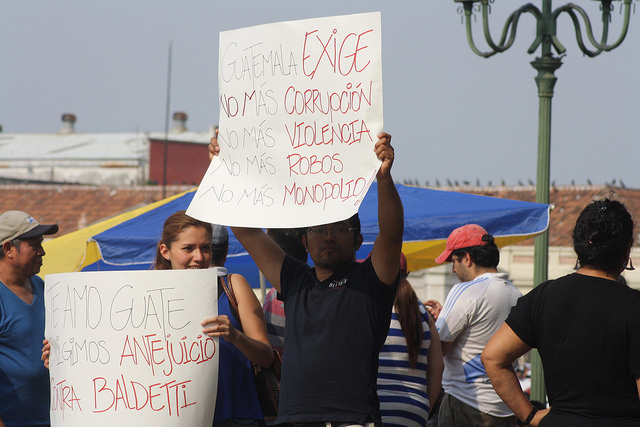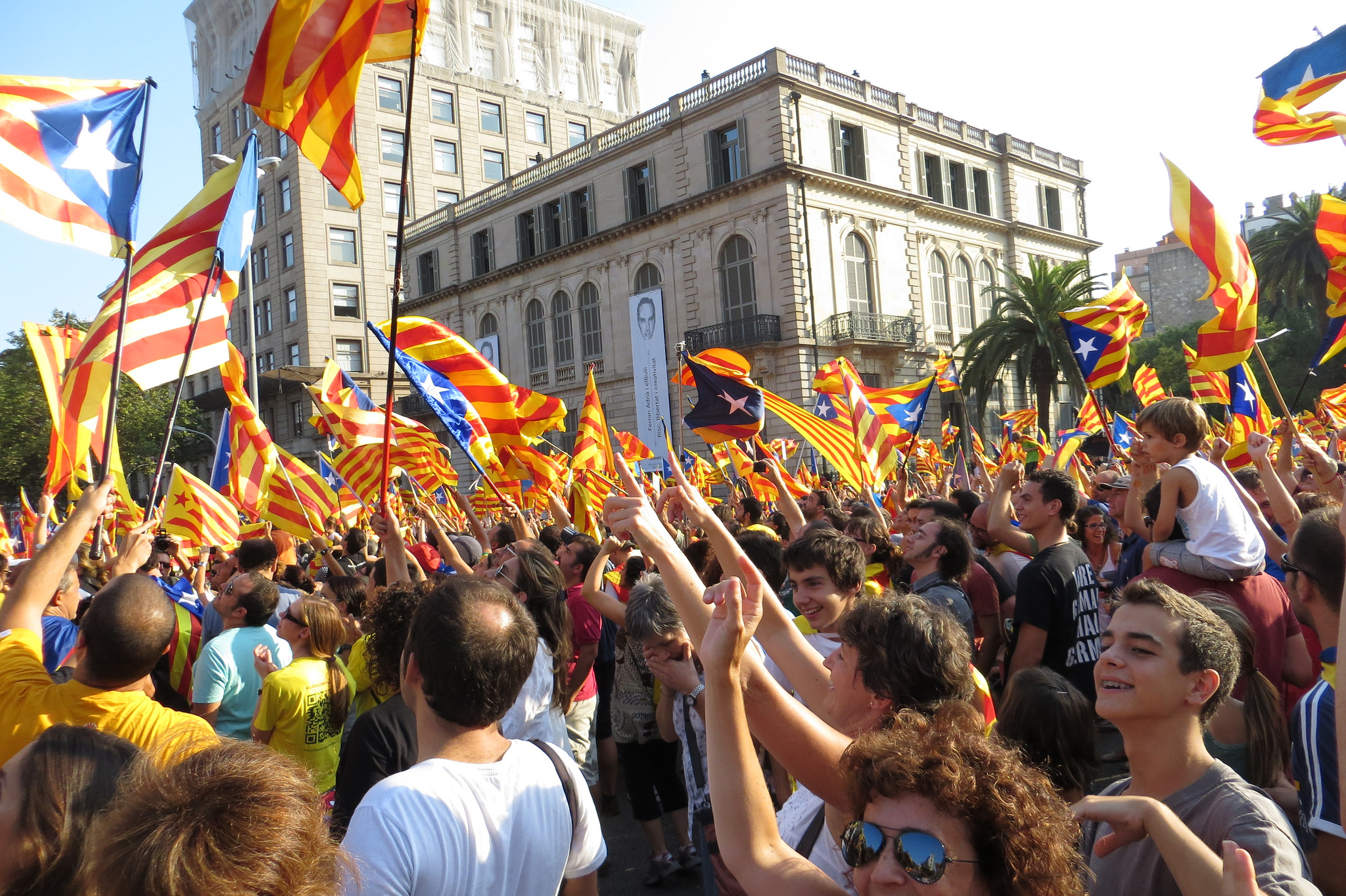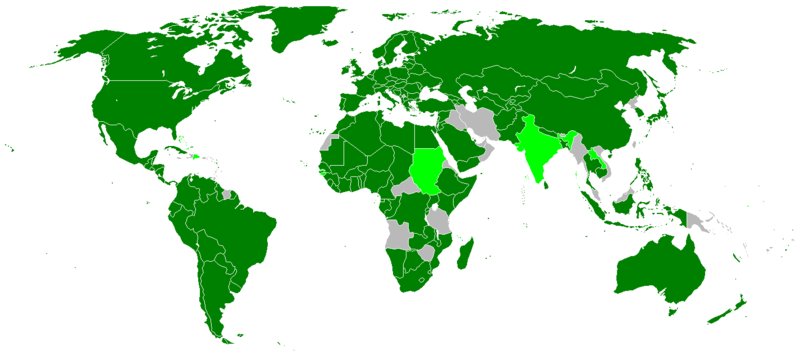
With all the talk about Kim Jong-un and nuclear weapons, another puzzle goes unanswered. North Korea is one of the world’s most miserable places to live and yet has experienced surprisingly little rebellion. Despite an annual GDP per capita of about $1,800 (197th in the world), an average life expectancy of 69 years (decreasing over time), sporadic electric power, and periodic famines North Korean citizens remain surprisingly quiescent. A quick and easy answer might be that the North Korean army is strong and could easily repress dissent — why rebel when you know the government will immediately crack down?
But many said the same about East Germany in the 1980s, Iran in the 1970s and late 2000s, and Libya, Syria, and Egypt before the Arab Spring. How does one know that the army will remain loyal to the government once people take to the streets?
So today’s puzzler is this: Given the level of deprivation in North Korea, why don’t citizens rebel?
Answer to last week’s puzzler:
Where have all the citations gone? On April 5th I posed the puzzle of the gender gap in citations in the IR literature. If you look at articles published in the top IR journals between 1980 and 2006, you find that those authored by women get significantly fewer citations than articles written by men. This is true even if you control for all the factors that could possibly affect citation counts.
In our article, Dan Maliniak, Ryan Powers and I surmised that two factors could account for this citation gap. First, women tend to cite themselves less than men. Second, men tend to cite other men (and women other women). Still, this didn’t account for all of the gap. I’m still not sure why the gap persists, but I have a few hunches. The first is that personal and professional networks matter a lot. People tend to read the work of scholars they know and with whom they are friends. Men are more apt to be friends with men, and women with women, and in a profession where a large majority of all scholars are men, this means that men will get a bump and women will not. So the gender make-up of the profession matters. The second has to do with gender stereotypes. A special issue of Nature (March 7, 2013) took a hard look at the gender gap in science, and discussed a 2012 study by Yale’s Jo Handelsman that showed that both male and female scientists had a pervasive bias against female scientists. In another study, Knobloch-Westerwick, Glynn, and Huge (2013) found that male and female scholars both believe that male researchers produce higher quality research than female researchers. What this suggests is that it’s not just men who are failing to give credit where credit is due, but that women are also failing to give themselves the credit they deserve. My guess is that this is the way both gendered have been socialized. But this is a puzzle in and of itself.







6 comments
I think the self-congratulatory racist ideology promoted by the government explains much of the regime’s apparent popularity. Similarly, the KPA doesn’t appear to be an independent actor that can choose to support or not support the government (as in Mubarak’s Egypt), but instead is tightly integrated to the regime.
Epistemic Closure: The North Korean Government has managed to generate a nearly bullet-proof information wall around its borders, through which nearly no information enters or exits. In the absence of foreign or independent domestic media, the government is able to cultivate a narrative that the citizens have no means of doubting, and thus no perceived incentive to attempt to overthrow.
The closed nature of North Korean society and high levels of isolation of the population vis-a-vis the rest of the world may also have something to do with citizens not rebelling. Surely they are not completely oblivious to the Arab Spring revolutions that swept the Middle East and North Africa 2 years ago, but they also likely did not and do not currently benefit from the access to media (social and other) and “people networks” that citizens of countries such as Tunisia and Egypt had at their disposal. North Koreans remain far removed from the processes of diffusion that allowed revolutions to domino from one country to the next in the MENA region.
Additionally (and I certainly am no expert on North Korea), maybe the absence of a popular uprising has to do with the fact that citizens of Pyongyang enjoy a relatively (key word) comfortable life compared to that of their rural counterparts. I may be wrong, but it would seem to me as if popular uprisings have the best chance of gaining momentum and influencing change if they benefit from mass gatherings of people, which are more likely to occur in heavily populated urban settings than in rural areas where people are more dispersed, less connected with one another, etc. If the majority of grievances are held by the poorer, rural population in North Korea, but the bulk of the population lives more comfortably in the capital city and other urban centers, then this could also contribute to why we see no popular uprisings.
One of the conditions that makes a popular resistance movement possible is the existence of civil society institutions, such as churches, universities, labor unions, or civic organizations, that exist beyond the direct control of the state. These institutions help citizens to organize and mobilize collective actions to protest and resist a repressive regime. North Korea has few, if any, such institutions, because the populace is heavily policed and monitored by the totalitarian regime. Combined with the regime imposed restrictions on freedom of movement and freedom of the press and the isolation of North Korean society from transnational advocacy organizations (which could perhaps serve as proxy civil society institutions), the likelihood that citizens could organize against the regime is slim.
In short, rather than the effectiveness of state ideology or propaganda or an absence of discontent among key sectors of the populace (as some suggested above), it is the structure of North Korean society, one defined by a weak and perhaps nonexistent civil society, that prevents effective resistance from emerging.
I can shrink this whole article down to one word: Indoctrination. Look up that word and it will pretty much explain why. When people think their leader is “god”, that is the only way to do it. When soldiers are suffering almost as much as the citizens and there is still no rebellion?